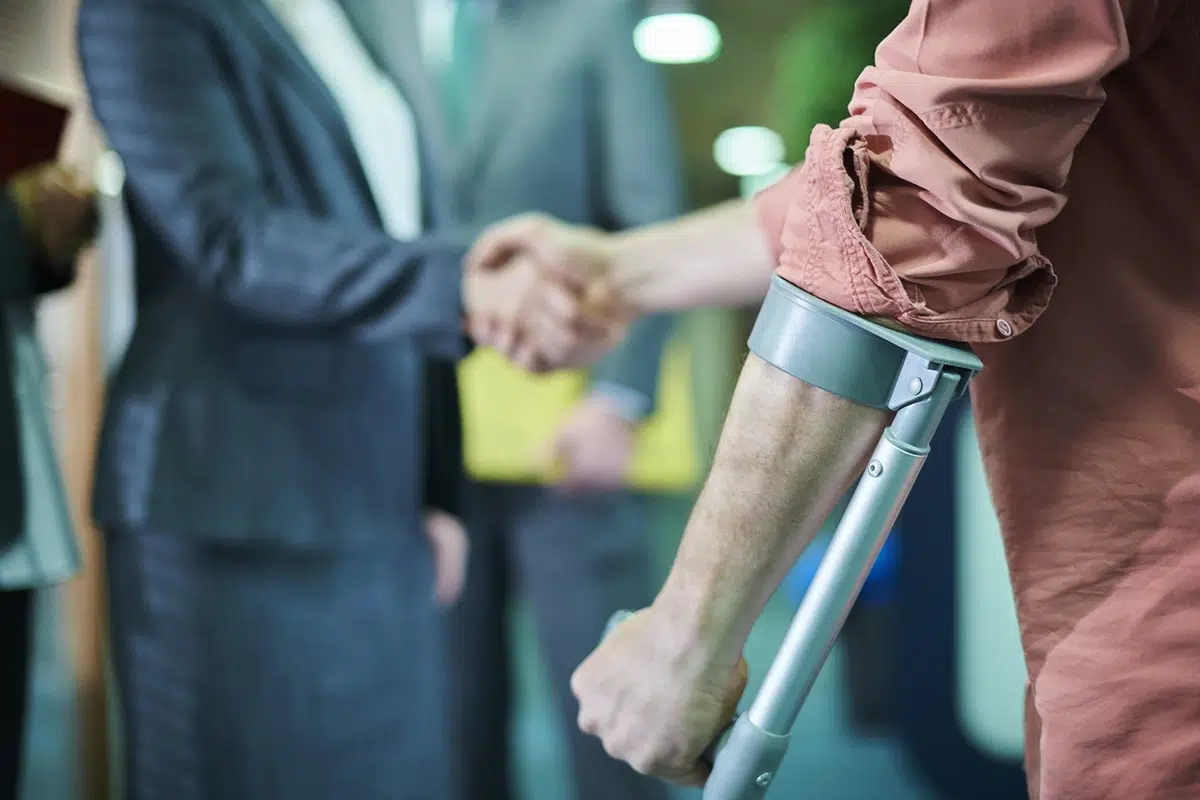As top-rated personal injury lawyers in San Francisco, we know that navigating the legal system without expert help is challenging. Luckily, you don’t have to do it alone. Contact us online to schedule a free case evaluation with one of our compassionate legal experts.
To some people, the term “lawsuit” is a dirty word. What’s interesting is that their opinion isn’t typically based on personal experience, or even on factual knowledge. Rather, they’re just convinced that nothing good will come from it, and—believe it or not—we can understand why they feel that way.
No one should have to wade through bureaucracy and complicated legal language when they’re trying to access a relatively simple legal process. It’s discouraging to know you have legal rights but to feel as though you can’t access them, and we can sympathize with that. However, it’s not that simple.
Here’s the thing: Like it or not, you may someday find yourself in a situation where, to no fault of your own, an accident leaves you financially devastated. When that happens, your only recourse may be to pursue a personal injury claim.
Luckily, it doesn’t have to be a daunting process when you work with an experienced, top-tier law firm like Delfino, Green & Green. Our legal professionals specialize in making the personal injury claim process as painless as possible with thorough and frequent communication, expert legal advice and passionate commitment to your betterment.
If you or a loved one have suffered serious injuries in an accident caused by someone else, you may want to consider recouping your losses through a personal injury lawsuit. However, you may also be wondering, “How does the personal injury claim process work?” Rest assured, we’ll explain everything you need to know in this article.
Are you drowning in medical debt after an injury? If you’re curious about filing a personal injury claim, remember: There is a deadline. In California, it’s typically two years from the date of your injury, so don’t delay—call us at (415) 442-4646 for an initial consultation.
What Is a Personal Injury Claim?
A personal injury claim is a legal action you can bring against a person, persons or party that caused your injuries. In this context, “injuries” can refer to any type of injury to your physical body, emotions or reputation.
There are three grounds on which injury victims can file a claim: negligence, strict liability and intentional wrongs. Here’s what they each entail:
- Negligence. Most personal injury claims are brought on the basis of negligence. It refers to when a person acts recklessly and fails to behave with the same level of care with which a reasonable person would.
- Strict liability. A strict liability claim argues that the defendant is liable for their actions, regardless of their intentions or mental state. For example, a product liability lawyer may use strict liability as grounds to file a claim against a manufacturer that sold a defective, hazardous product that injured their client.
- Intentional wrongs. This is as straightforward as it sounds. A personal injury claim brought on the grounds of intentional wrongs means the defendant is accused of purposely harming the victim, through an action like assault, battery, trespass, intentional infliction of emotional distress and more.
As you can see, personal injury claims can arise out of bodily harm, like injuries resulting from nursing home abuse, car accidents and assaults, as well as non-bodily harm. Examples of the latter may even include invasion of privacy, defamation and malicious prosecution.
How Does the Personal Injury Claim Process Work?
While some personal injury claims can resolve settlement negotiations without a lawsuit, others must go to court and await a jury’s verdict. Either way, the claim process starts with the following three steps:
- Seek medical treatment. Nothing is more important than your health. If you were hurt in an accident, it’s essential to seek medical attention. Not only does medical treatment ensure your safety, but it also provides essential evidence, should you decide to open a lawsuit.
- Open a claim. You will need to open a claim with the at-fault party’s insurance company, as well as with your own. However, you don’t have to do it alone; your personal injury lawyer can help you file both claims.
- Submit a demand letter. After opening insurance claims, your lawyer will start preparing a demand letter. Included will be a thorough explanation of your story as it would be presented to the jury in court. The package will also contain documentation of police reports, medical records, hospital bills, evidence of lost wages and other financial losses.
At this point, you and your attorney will wait for a response to your demand package. If it presents a strong case, the at-fault party or their insurance company may agree to pay the demand, and the case would be settled. Although this outcome allows you to avoid a potentially lengthy lawsuit, it’s never a good idea to settle for less than what your case is worth.
If you don’t receive a fair settlement offer, your next step is to pursue a lawsuit. Your attorney will file a lawsuit in court and ask for a trial by jury. When your case goes to court, the jury will listen to your story and evaluate all the evidence. Based on their findings, they’ll decide how much to award you in financial damages.
It’s important to remember that a case can be settled at any time in this process if both parties agree to it. It’s only when no settlement is reached that the case is ultimately decided in court by a jury verdict and judgment.
Personal Injury Claim Process FAQ
Like many legal processes, the personal injury claim process is complex. The way a particular claim plays out depends on many factors, as well as the specific circumstances of their case. Luckily, an experienced attorney in San Francisco can make it much, much easier.
If you still have questions about how the personal injury claim process works, your best bet is to contact a trusted personal injury firm. In the meantime, read through our FAQ section to learn more.
- How do I know if I have a case?
In most situations, people who’ve suffered injuries and other losses in an accident caused by someone else have grounds for a case. However, the best way to know is by scheduling a free consultation with a personal attorney.
- What is mandatory arbitration?
Mandatory arbitration is a clause that some companies include in their contracts for employment or the purchase of a good or service. By signing the contract, the person essentially nullifies their right to file a lawsuit and must instead pursue arbitration to deal with disputes.
- How long will it take to resolve my claim?
Every claim is different, so there is no standard time for resolving them. Most personal injury cases are settled outside of court, which is faster than going to trial. As a general rule, claims involving substantial injuries and damages, a lot of complexity and ambiguous liability take longer to settle than those that don’t.
- What is in a release in a settlement?
In terms of a personal injury settlement, a release is a document you sign in exchange for receiving settlement money. It essentially means that you release all of your legal claims against the defendant and their insurer if you accept the money.
- How do I pay for a personal injury lawyer?
Fortunately, personal injury victims don’t need to worry about paying their lawyer upfront. That’s because almost all personal injury attorneys work on a contingency fee basis, meaning they don’t get paid unless—and until—they win your case.
- Do I have a case if I don’t feel hurt?
In the aftermath of a serious car accident, people involved are generally in a state of shock. Adrenaline rushes through their bodies, temporarily numbing their perception of pain. However, pain and injuries may present days and even weeks later, which is why it’s essential to seek medical treatment after an accident, even if you think you’re fine.
- What damages can I claim?
The main damages available to personal injury victims are compensatory damages, which come in the form of economic and non-economic damages. Economic damages refer to financial losses, including medical bills and treatment, lost wages, property damage, etc. Non-economic damages refer to intangible losses, like loss of quality of life, pain and suffering, emotional trauma and more.
In rare cases, the actions of the defendant are so egregious that the court also awards punitive damages. Whereas compensatory damages are meant to compensate the victim, punitive damages exist to punish the defendant and discourage them from making the same mistakes again.
Delfino, Green & Green: Premier Personal Injury Law Firm in San Francisco
Regardless of what you’ve been told, most personal injury victims don’t want to file a lawsuit. They do so because it’s their only viable option to secure the compensation they need to recover.
At Delfino, Green & Green, we specialize in upholding the rights of injury victims in the Bay Area and beyond. We fight for their compensation because it’s the right thing to do, and because they deserve to have an advocate when they’re down and out.
Wondering if you have a case? Finding answers is as simple as contacting one of our legal experts for a free case evaluation, so get help today! Visit us online or give us a call at (415) 442-4646 to explore your eligibility.



